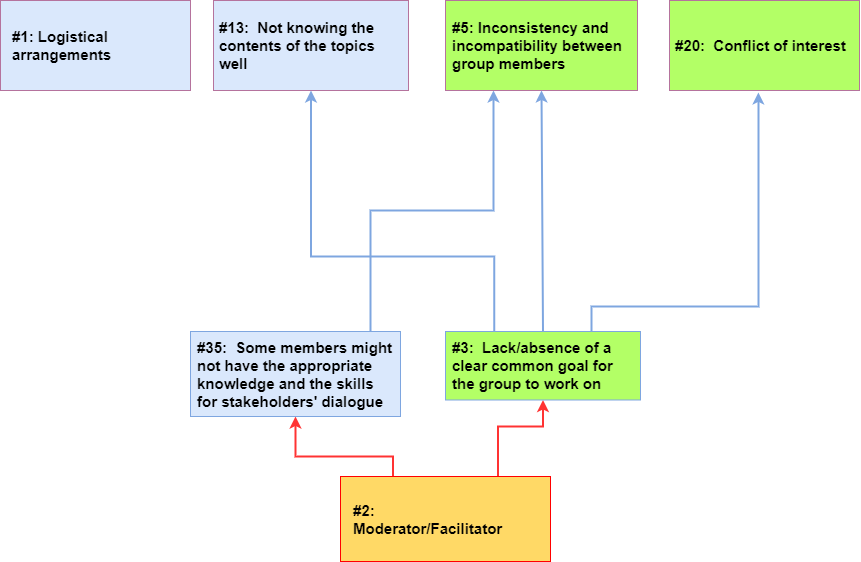Virtual SDDP MedBEESinessHubs 2022: Difference between revisions
(Added diagrams names) |
No edit summary |
||
| Line 8: | Line 8: | ||
|author=[[Yiannis Laouris]] | |author=[[Yiannis Laouris]] | ||
|editor= [[Camille Lechoux]] | |editor= [[Camille Lechoux]] | ||
|total_duration= | |total_duration= 5 weekly Zoom meetings | ||
|stats=Participants=18 <br> Number of ideas=35 <br>Number of Clusters=6 <br> Ideas received Votes= 17 indicating Spreathink = 40% <br> Ideas on MAP R= 7 | |stats=Participants=18 <br> Number of ideas=35 <br>Number of Clusters=6 <br> Ideas received Votes= 17 indicating Spreathink = 40% <br> Ideas on MAP R= 7 | ||
|dates= Feb - May 2022 virtual (zoom) | |dates= Feb - May 2022 virtual (zoom) | ||
Revision as of 02:09, 19 July 2022
|
Executive Summary
This report has been developed in the context of the MedBEESinessHubs project. It is the result of two Structured Democratic Dialogues (SDDs) in Cyprus between March and June 2022. The aim of the activities was to train representatives from the participating countries on how to apply SDDs to address local challenges in their respective rural communities.
The first part of the SDD training took place between May and June 2022. It was organized as a sequence of 5 weekly Zoom meetings. The Triggering Question was: “In the context of your work, what are obstacles that prevent efficient stakeholders’ dialogues?” The participants produced 35 ideas, which were clustered in 6 categories. After voting for their top 5, 17 ideas received votes (indicating Spreathink = 40%), and 7 were structured. The following ideas made it to the root of the tree: #3: (9 Votes) Lack/absence of a clear common goal for the group to work on; #2: (7 Votes) Moderator/facilitator; #5: (4 Votes) Inconsistency and incompatibility between group members (age, educational level and experience, etc.): #20: (4 Votes) Conflict of interest; #13: (3 Votes) Not knowing the contents of the topics well; #35: (3 Votes) Some members might not have the appropriate knowledge and the skills for stakeholders’ dialogue; and #1: (1 Votes) Logistical arrangements. The striking finding is that the group identified #2: Moderator/facilitator, as the most influential factor.
Visual Overview of List of Clusters
File:Map Bees Clusters(Training)-Clusters.png
Visual Overview of Mapping
Participants
| Name |
|---|
| Abdalaziz, Al-Salhi |
| Amal, Wehaibe |
| Amr, Daoud |
| Androulla, Xenophontos |
| Ayed, Abdel Aziz |
| Christos, Tanteles |
| Demetra, Palaonda |
| Elia, Wehbe |
| Evi, Kazamia |
| Fady, Abou Fayad |
| Fransesco, Bachis |
| Geogia, Venizelou |
| Greca, N.Meloni |
| Khaldoon, El Hassanieh |
| Luigi, Manias |
| Mai, Darwish |
| Merna, Ziadeh |
| Noni, Demetroula |
| Noor, Alzaben |
| Osama Mourise |
| Said, Gedeon |
| Samra, Raconcic |
| Savvas, Maliotis |
| Yiannis, Laouris |
| Marios, Michaelides |
| Camille, Lechoux |

